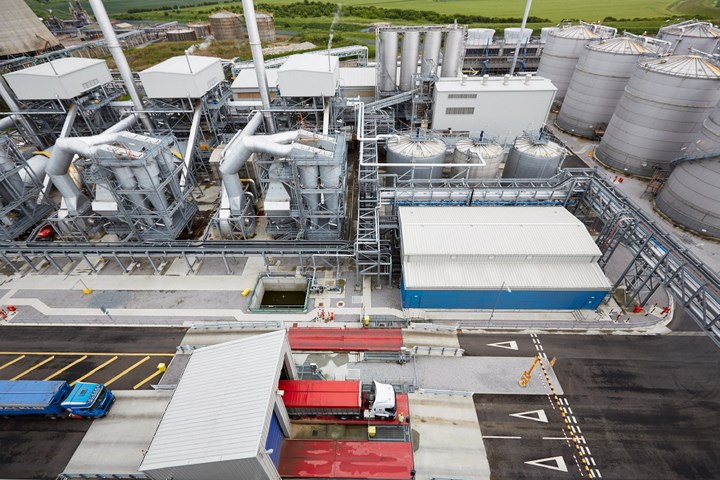Second UK bioethanol plant announces risk of ‘imminent’ closure

A SECOND UK bioethanol plant has said this week it faces “imminent closure” following the US-UK trade deal agreed last month.
Teesside-based Ensus announced on Monday that it may be forced to close without government support for the UK bioethanol sector, which risks being undercut by US imports following the removal of 19% tariffs under the US-UK deal.
Ensus’ announcement follows weeks of warnings from bioethanol manufacturer Vivergo, based in Hull, which said it will close if it receives no commitment of support from the government by 25 June. Ensus has not confirmed a specific date for closure.
Ensus and Vivergo – the UK’s only two major bioethanol plants – produce ethanol from wheat feedstock, mostly sourced from British farms. Vivergo has suspended its purchases of this feedstock until it receives clarity from the government. Combined, the two plants produce 820m L of bioethanol each year, far short of the 1.4bn L quota US producers will have tariff-free access to supply. US ethanol producers, who are already heavily subsidised, produce the chemical using waste from corn farming.
Bioethanol in the UK is mostly used as a fuel blend in petrol to help reduce emissions. Ensus, owned by the German conglomerate Südzucker, the world’s largest sugar manufacturer, is working with Vivergo to urge the government to increase UK demand for bioethanol above 1.4bn L. Vivergo believes the best way to do this is to increase the proportion of bioethanol in standard grade petrol from 10% to 15%, which would also reduce emissions from cars.
As a byproduct of the process, Ensus makes high purity commercial CO2 used in beverages and as a preservative in packaged food. Their CO2 is also used in hospital operating theatres and as a coolant in nuclear reactors. Both Ensus and Vivergo also produce high protein animal feed as a byproduct which is sold back to farmers.
The ethanol component of the trade deal, which was primarily intended to support the UK car and steel industries, was described by the CEO of ABF Sugar, Vivergo’s parent company, as a “last-minute concession” in the negotiations. Ensus UK chairman Grant Pearson, meanwhile, said the “government urgently needs to find a solution to a crisis of its own making”.
Pearson added: “We need a solution which will not only save these skilled jobs on Teesside but also prevent a catastrophic knock-on effect in other vital sectors of the economy.
“The closure of Ensus – a profitable, growth-generating business, would be a disaster for the UK’s ability to develop a green industrial base as we are part of the solution to decarbonising the UK’s chemical industry and producing important products for the future such as sustainable aviation fuel.”
Ensus and Vivergo employ over 260 people, while supporting thousands more indirectly in agriculture, transport and chemical storage. Tees Valley mayor Ben Houchen said: “The chemical sector is the backbone of countless industries and this trade deal, as it stands, has the potential to cripple it. That’s simply unacceptable – we urgently need clarity and intervention now.”
Vivergo has been in discussions with business secretary Jonathan Reynolds and transport secretary Heidi Alexander on the implications of the trade deal for bioethanol. After president Donald Trump signed off on the part of the deal to reduce tariffs on British cars on Monday, Reynolds said he planned to “update parliament” regarding bioethanol.
Recent Editions
Catch up on the latest news, views and jobs from The Chemical Engineer. Below are the four latest issues. View a wider selection of the archive from within the Magazine section of this site.




